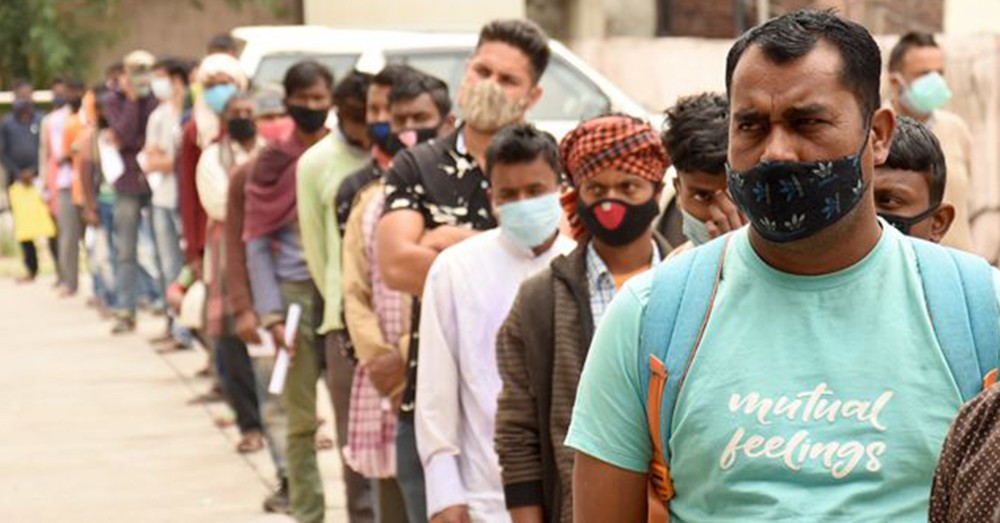A coronavirus variant identified in India is being investigated by scientists across the world.
However, it is not yet known how far it has spread or whether it is driving the deadly second wave of Covid in India itself.
Viruses mutate all the time, producing different versions or variants of themselves.
Most of these mutations are insignificant - and some may even make the virus less dangerous - but others can make it more contagious and harder to vaccinate against.
This variant - officially known as B.1.617 - was first detected in India in October.
Sample testing is not widespread enough across India to determine how far or quickly the variant is spreading.
It was detected in 220 out of 361 Covid samples collected between January and March in the western Indian state of Maharashtra.
Meanwhile, it has been spotted in at least 21 countries, according to the GISAID global database.
International travel appears to have brought the variant to the UK, where 103 cases have been identified since 22 February.
And Public Health England has listed the India variant as one of several "variants under investigation" but does not so far consider it serious enough to be classified as a "variant of concern".
Most travellers from India have now been banned from coming to the UK.
Share This Post















